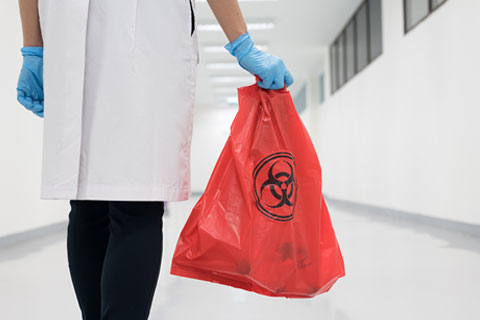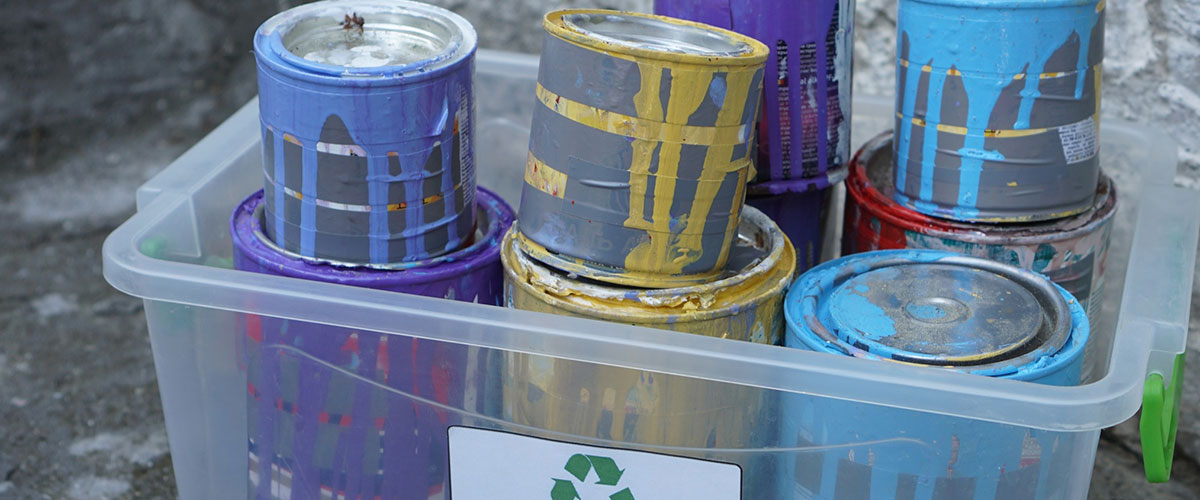Penrith is a small but charming community hidden in the middle of Hawkesbury Valley and the Blue Mountains in New South Wales. It takes just about one hour to drive to the business and financial centre that is Sydney from Penrith City. Due to its proximity to Sydney, Penrith has also somewhat become a hub for work and business.
These factors have led to a significant growth in the number of people who live in the city or come to the city every day for work. The Penrith City Council has had to come up with smart Penrith waste services and management programs and sound garbage collection to deal with the growing amount of waste. These sensible and smart solutions can serve as an inspiration for other towns and cities.

1) They Have A Waste Centre For Chemicals
In Penrith, one of their best practices in waste management is that they don’t put their chemical and other hazardous waste in the regular garbage bins. Chemical waste is usually made up of all the chemicals used in households. You’ll see most of them in small bottles or canisters kept in one of your garage or garden shed corners, or in your dirty kitchen or laundry area. Oftentimes, they’ve already gone past their expiry date. Here are the things that are classified as chemical waste:
- Household cleaning chemicals
- Bottles that contain chemical gases
- Acids and alkalis
- Electric light tubes and globes
- Paint and related products
- Fire extinguishers
- Chemicals used for hobbies
- Chemicals used for garden
- Engine oils
- Fuels and car fluids
- Car batteries
- Chemicals used to clean pools
- Poisonous liquids and gases
There’s a reason people shouldn’t be allowed to put their chemical and other hazardous waste in the regular household bins for collection. These chemicals are very harmful to the environment if they’re not properly handled during transportation or disposal. For one, liquid chemicals can seep into the porous soil and contaminate groundwater and subsoil water near the surface. This can cause sickness in people when huge volumes have mixed with groundwater that goes into the town’s water supply.
Animal, both pets and wildlife, can also get sick when they ingest these chemicals. Moreover, those collecting your garbage can also get wounded by gas bottles and light globes if they didn’t know any better what’s in your black bags.
People can learn from what Penrith does with their chemicals and hazardous waste since they have a separate Penrith Community Recycling Centre. They’ll accept quantities of not more than 20 kilograms or 20 litres of chemicals and not more than 100 litres of paint. For quantities more than those mentioned, they hold Chemical Cleanout Events where folks can take their chemical waste.
2) They Don’t Put Their Sharps In Bins
Another thing that others can learn from Penrith is how they handle waste items with sharp edges. They don’t allow people to put their sharps and glass shards in either their green-lid food organics and garden organics (FOGO) bins or their yellow-lid recycling bin.
Sharps are waste materials that have sharp edges or pointed ends. Some examples of these are needles, syringes, diabetic care kits, and other handheld instruments that are usually used for piercing. They can also be made of broken glass bottles or shards. People shouldn’t put these in their bins because they can wound the crew in charge of collecting garbage. For instance, an upright syringe or needle hiding just beneath a black bag might pierce their hands as they grab them.
You can learn from what they do in Penrith with these sharps. They put them in sharp containers that are sold in pharmacies. You can also use those empty rigid plastic containers used for dishwashing liquid, cleaning chemicals, and liquid detergents. By placing them inside these containers, sharps won’t pierce anyone by accident.
3) They Bring Their Discarded Electronics To Recycling Centre
You can also take a page from what Penrith folks do with their discarded electronics—they take them to the Penrith Community Recycling Centre. Electronic or e-waste is made up of damaged, non-functioning, or old electrical items. Some examples include broken appliances such as toasters and microwave ovens, old mobile phones, earphones, printers and cartridges, electric fans, electronic gadgets and tools, DVD or VCR players, computer monitors, keyboards, and other electronic stuff that already died on you.
These electronic waste materials should be brought to a recycling centre because they can be harmful to the environment if not properly disposed of. The plastic components and casings of electronic waste amount to 70% of all the toxic chemicals recklessly dumped into the environment. Penrith Library has also been tapped to receive and collect these electronic waste materials.
Conclusion
Penrith Council has been able to devise common-sense and clever solutions to everyday waste and garbage problems. They have a separate recycling centre for chemicals and hazardous waste, sharps and shards, and electronic garbage. Other towns and cities could certainly draw inspiration from what they do in Penrith.



